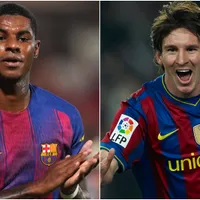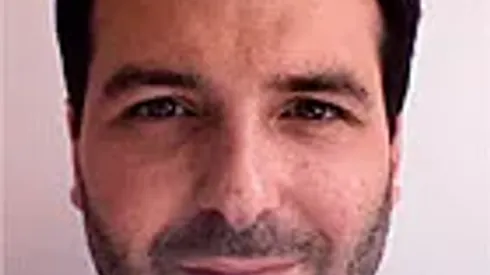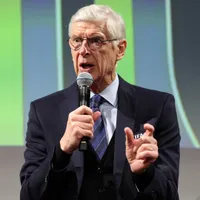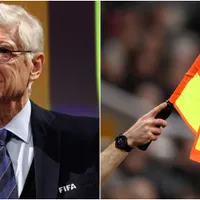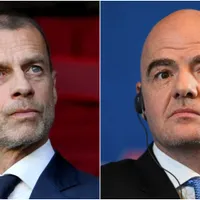Many readers may know Honigstein best from his appearances on the Football Weekly Podcast by The Guardian. Here’s the transcript of the interview. Enjoy.
The Gaffer: What goals do you have with Footbo.com?
Raphael Honigstein (RH): We’d like to be the natural destination site for people who love football and want to discuss/enjoy/experience it with others online. You’ll see big new features in the next month or so that will radically expand our scope. Social networking is only the start for us.
Mark Moll (MM): Growing up in Munich, did you ever appear for a local youth side?
RH: My football education was somewhat unusual because I never liked the idea of organised sport as a kid. My parents didn’t push me towards that direction either, so instead of joining a club, we literally played football seven days a week with friends in parks and on school pitches – until the janitor kicked us out. We also formed a team that took part in Munich’s biggest amateur tournament every year. I only played my first game for a proper club when I was 18, in Munich’s lowest league (C-Klasse). A year later, I moved to London where I played for UCL (University College London) but I think it’s fair to say I found their interpretation of the football rules a little disturbing. In 90 minutes, there’d be perhaps one free-kick. I’m not exaggerating. After a few more years in a London Sunday league and three ACL surgeries later, I called it a day in 2002.
MM: You’ve been living in London now for 15 years, how did you get your start covering football?
RH: I started writing music features for Süddeutsche Zeitung’s youth supplement while at college. When my predecessor, the legendary Ronald Reng, decided to move to Barcelona in 2002, I inherited his job.
MM: Having written for English, German, and American audiences do find that you write in a distinct style for each?
RH: It’s not so much a case of different audiences in different countries – more important is the type of publication. In a broadsheet, you have to explain things a bit more because you can’t be sure about the detailed knowledge of the reader. The opposite is true for football or sports magazines, where you can concentrate more on the details. And writing for the Guardian online is obviously a writer’s dream assignment – there are no rules, apart from filing on time. That’s the most difficult part of it.
MM: If the Premiership is noted for its tough, uptempo play and La Liga for its technical virtuosity on display, how would you characterize the Bundesliga?
RH: I think the Bundesliga has traditionally tried to blend the controlled aggression and physical side of the English game with good technique. We’ve also had good input tactical input from Eastern European coaches in the 60s and 70s.
It’s an interesting time now. After years of neglect, most teams are waking up to a more scientific approach when it comes to fitness and tactics. The stadiums are always full and cheap prices have insured that the core audience of young males hasn’t been alienated. I think the league is well poised to challenge La Liga and Serie A for second spot in the long term.
Double Pivot (DP): Last year, after a seemingly very successful Ligapokal, there was talk of expanding the pre-season tournament to as many as 32 teams. Yet this year, we find it canceled. What is the situation with that tournament, and how do you see it evolving in the coming years?
RH: Due to the Euros and the late return of the German internationals, they simply couldn’t find suitable dates this season. Its future is under review right now. There has been talk about staging it abroad, but I don’t see that happening in the coming years.
DP: Felix Magath has really turned around Wolfsburg and seems poised for a very successful campaign. If he does have success, could you see the Bundesliga moving from trainers to English style managers?
RH: It’s possible, but most clubs are naturally reluctant to give too much power to a single individual. I think it’s more likely that the continental model – coach + sporting director – will make headway in England rather than the other way round. A few PL clubs are already run that way because they’ve found that the task is too big for one individual. Even Ferguson or Wenger delegate a lot of work.
The continental model is also better at avoiding George Graham-type situations of “conflict of interest” when it comes to signing players.
DP: I would love to get your opinion on the capabilities and weaknesses of Germany’s bumper crop of young keepers: Rene Adler, Manuel Neuer and Michael Rensing. And when do you think Low will give these kids the chance they deserve?
RH: Adler is the best by far. He doesn’t have any obvious weaknesses. He’ll be a very serious contender for the World Cup, along with Hildebrand and Enke. I wouldn’t be surprised if Bayern had already secretly talked to him. I don’t think they’re really sold on Rensing, who is good but not outstanding in my view. He doesn’t dominate the box enough, lacks presence and is suspect when it comes to long-range shots. He’ll be given six months to prove himself. Neuer, on his day, is an incredible shot-stopper, with good instincts. But he seems to suffer from nerves and still makes too many mistakes.
DP: The well has dried up as far as Europe is concerned with Bundesliga sides. What do you think needs to happen for Germany to start catching up with the big three leagues in UEFA/UCL?
RH: In the Champions League, it will be a while before German clubs can compete on equal terms. The financial power of the big four in England, the top two in Spain and the top three in Italy is just too big. Bayern can and should make some sort of an impact, but for a more sustained attack, we simply need more TV money or oligarchs. In a way, the Bundesliga has also been a victim of its competitiveness: the top five, with the exception of Bayern, are very fluid, and without regular CL money, clubs like Hamburg or Stuttgart find it hard to sustain the challenge in Europe.
As for the UEFA Cup, I think there’s actually a good chance a German team will win it this season. Results notwithstanding, Bayern and Werder were the best teams in the competition last year, and decent results over-all have seen us over-take France in the UEFA rankings. Significantly, the Bundesliga clubs also got better results collectively than Italian teams last season. That hasn’t happened before in the last ten years. Similar results this season would put us on course to wrestle third spot from Italy in the UEFA rankings in two years time.
Visit Raphael Honigstein’s page at Footbo.com.


